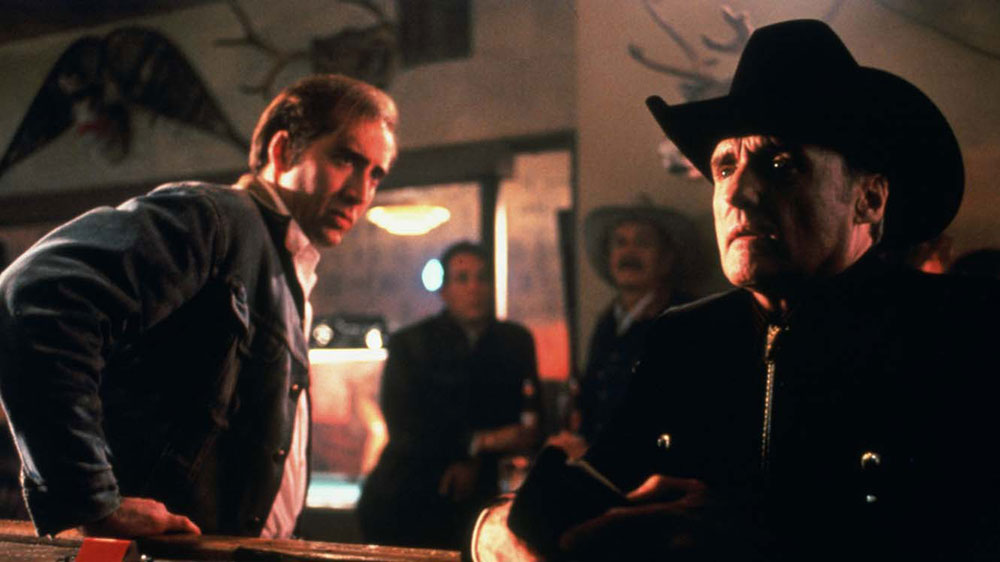The narrative and aesthetic hallmarks of noir films are some of cinema's most deeply entrenched. One could chalk this durability up to either pop culture osmosis or a lack of change in the material realities that informed these tropes when they first came into existence. Either way, the American director John Dahl was clearly paying tribute to the legacy of film noir when he wrote and directed Red Rock West (1993). Though drenched in deceptive western iconography, Red Rock West is a potboiler at heart. It’s a film that trusts that its audience will find its narrative twists compelling in and of themselves—the cinematic equivalent of comfort food.
Michael Williams (Nicolas Cage) is an ex-marine with only five dollars in his pocket drifting around Wyoming in search of a steady gig. After being rejected from an oil job due to a wartime injury, he enters Red Rock West in need of a drink. There, the local bar owner, Wayne (J. T. Walsh), mistakes him for “Lyle from Dallas,” a hitman whose reputation precedes him. After Wayne offers him ten thousand dollars in cash—half upfront—to kill his unfaithful wife Suzanne (Twin Peaks’s Lara Flynn Boyle), Williams decides to take the cash and split. But his consciousness gets the better of him and he decides to warn Suzanne that she’s in danger. Romantic entanglement ensues and Cage keeps the hitman act going for a little too long, finding himself at the whim of circumstances beyond his control that put him on the wrong side of both the law and the real Lyle from Dallas (Dennis Hopper in top form). Tenuous alliances are repeatedly forged and broken as the film’s four characters try to best each other and get away with the cash.
The film’s structure involves Cage and Hopper playing off each other as narrative heels. While both of them are actors whose career-long propensity for transcending the typical qualifiers of realistic acting has defined their cinematic personas—for better and worse—more than anything, they are actors who are wholeheartedly committed to realizing their characters, even when they’re not chewing the scenery. In Red Rock West, they do so with gusto, breathing life into stock archetypes. Such a choice is emblematic of Dahl’s entire methodology: there’s a faith in the familiar, a belief in the aesthetic and its storytelling, a comfort in watching the wheel spin. It’s the type of film that we so rarely get anymore as viewers, one that rests the value of its entertainment on the laurels of its genre.
Red Rock West screens tonight, March 19, at Roxy Cinema on a 35mm print as part of the series “This is Cinematographe.”



